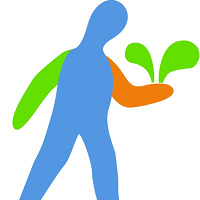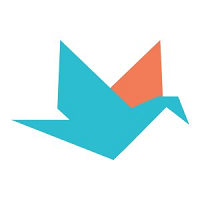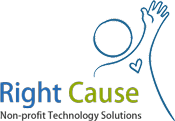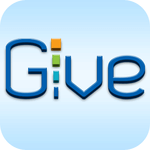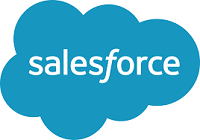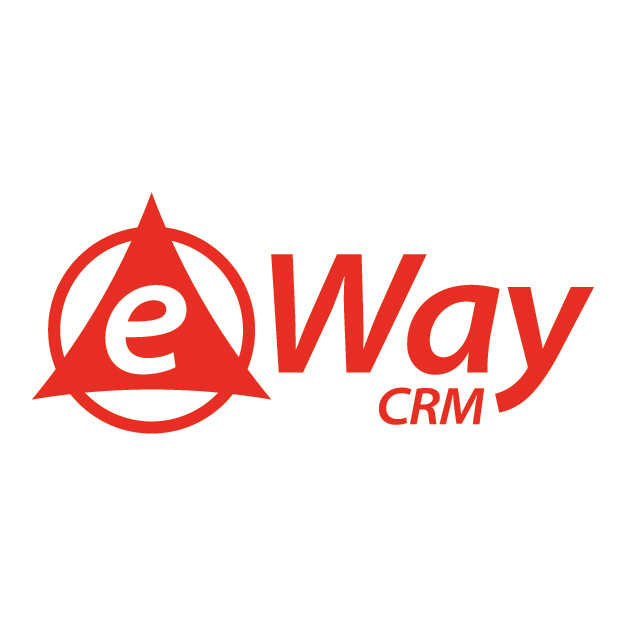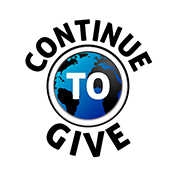What Is Nonprofit CRM Software?
Nonprofit CRM software, also known as Constituent Relationship Management software, is a sophisticated tool tailored to the needs of nonprofit organizations. It is a comprehensive solution that enables NGOs to successfully manage their connections with donors, volunteers, members, and stakeholders. This sort of software streamlines and automates several critical activities, including donor administration, fundraising, event planning, marketing, and communication, to assist NGOs in meeting their objectives more efficiently.
One of the most significant characteristics of nonprofit CRM software is the capacity to store and organize critical donor and supporter information in a centralized database, making it easily accessible and searchable. This allows NGOs to build complete profiles for each supporter and track their interactions, gifts, and communication choices.
With this information at their fingertips, NGOs may tailor their outreach and engagement activities, resulting in more personalized and meaningful encounters with donors. Another important feature of nonprofit CRM software is its fundraising capabilities. Nonprofits can use these tools to run fundraising campaigns, track donations, and generate reports to determine the success of their efforts.
They can also categorize donors based on several characteristics, such as gift size, frequency, and cause, to better target them and optimize their influence. Furthermore, nonprofit CRM software has event management functions, which are essential for planning and advertising fundraising events, galas, and other gatherings.
The program enables NGOs to design event registration sites, sell tickets, manage ticket inventory, and send automatic reminders and confirmations to participants. Furthermore, many CRM software providers integrate with major email marketing platforms, social media channels, and content management systems, allowing NGOs to reach out to supporters via several channels while streamlining communication efforts.
What Are The Recent Trends In Nonprofit CRM Software?
Nonprofit organizations are continuously working to improve their operations, boost efficiency, and increase donor engagement. This has led to an increase in the use of nonprofit CRM (Customer Relationship Management) software, which assists these organizations in managing their interactions and communications with funders, volunteers, and other stakeholders. Buyers should be aware of several important trends in nonprofit CRM software over the last few years.
These trends illustrate the charity sector's ever-changing needs, as well as technological innovations designed to meet those needs.
1. Concentrate On Donor Engagement And Relationship Development: Because organizations rely largely on donations, CRM software now prioritizes donor engagement and relationship building. This includes things like tailored communication, donor segmentation, and automated stewardship systems. Nonprofits can increase donations and keep loyal supporters by strengthening their donor connections.
2. Integration With Online Fundraising Platforms: As online fundraising grows in popularity, NGOs are searching for CRM solutions that work seamlessly with popular online platforms like Givebutter, Donorbox, and Classy. This enables NGOs to collect and maintain donor data in a single spot, streamlining operations and improving target and engagement with potential contributors
3. Mobile Accessibility: Nonprofit CRM software is recognizing the importance of mobile accessibility as more individuals use smartphones and tablets for all parts of their lives, including philanthropy. Many CRM solutions now include mobile apps or responsive design, allowing NGOs to view and update donor information on the go.
4. Data Analytics And Reporting: Nonprofits now rely on data analytics and reporting to track fundraising efforts, measure campaign performance, and make educated decisions. Many CRM software packages now include sophisticated reporting capabilities, allowing NGOs to obtain insights into donor behaviors, trends, and patterns to inform their fundraising tactics.
5. Integration With Other Nonprofit Software: Another popular trend in nonprofit CRM is the integration of accounting, grant management, and volunteer management systems. This integration minimizes human data entry, decreases errors, and gives a more complete picture of organizational data.
6. Artificial Intelligence (AI) And Automation: CRM software that incorporates AI technology may analyze donor data to find patterns and preferences, allowing NGOs to tailor their communications and increase donor engagement. Automation capabilities, such as email marketing and workflow automation, help NGOs save time by automating repetitive chores.
Benefits Of Using Nonprofit CRM Software
Nonprofits face particular hurdles when it comes to managing relationships with funders, volunteers, and other stakeholders. This is where non-profit CRM (customer relationship management) software comes in. A nonprofit CRM is specialized software that is tailored to the needs of charitable organizations. It enables these groups to streamline their operations, boost efficiency, and stay in touch with their supporters.
In this buyer's guide, we'll look at the advantages of utilizing nonprofit CRM software and how it can help your organization reach its objectives.
1. Centralized Data Management: One of the most significant advantages of adopting nonprofit CRM software is the ability to concentrate all of your data in one location. This means that instead of having many spreadsheets and databases, you can consolidate all of your donor, fundraising, and volunteer information into a single, easily accessible system. This not only saves time, but also assures that all of your information is correct and up to date.
2. Improved Donor Relationships: Donors are the lifeblood of every nonprofit organization, so cultivating positive relationships with them is critical. A nonprofit CRM can help you track donor interactions, preferences, and history, allowing you to adapt your communication and engagement strategies. This personalized strategy can result in deeper relationships with your contributors, boosting the likelihood of future support and gifts.
3. Automated Fundraising: Fundraising is an essential component of running a nonprofit organization, but it can be time-consuming and resource-intensive. Nonprofit CRM software allows you to automate a variety of fundraising operations, including donation tracking and receipt generating. This not only saves time, but also improves accuracy and lowers the likelihood of human error.
4. Enhanced Volunteer Management: Volunteers are critical to the success of nonprofit organizations, and they must be efficiently managed. Nonprofit CRM software can help you manage volunteer information, availability, and allocated duties. You can also automate volunteer communication and scheduling, making it easier to recruit and keep volunteers.
5. Data Analysis & Reporting: Nonprofit CRM software includes analytics and reporting features that enable you to acquire useful insights into your organization's success. You may monitor critical indicators such as donor retention rates, volunteer hours, and fundraising targets and utilize the information to make informed decisions and plan for the future.
6. Cost-Effectiveness: Nonprofit CRM software may appear to be an added cost, but it can ultimately save your organization money. You may save money on operating costs by streamlining operations, minimizing human error, and increasing efficiency.
Important Factors To Consider While Purchasing Nonprofit CRM Software?
When selecting nonprofit CRM software, there are numerous critical elements to consider to ensure that you get the best solution for your organization's requirements.
These variables will not only assist you in making an informed decision, but will also ensure that you invest in software that will benefit your nonprofit long-term.
1. Customization And Integration: One of the most important elements to consider when selecting nonprofit CRM software is the level of customization and integration provided. As a charity organization, you may have specific requirements and operations that necessitate a highly customized CRM system. You should also confirm that the software is compatible with the other tools and systems used by your organization.
2. User-Friendly Interface: When selecting nonprofit CRM software, make sure it has an easy-to-use interface. This ensures that your staff can quickly access and utilize the program without requiring substantial training or technical skills. A user-friendly interface will also boost adoption and efficiency in your firm.
3. Nonprofit-Specific Functionality: While most CRM software caters to a variety of businesses, it is critical to select software that includes specific functionality for nonprofits. This could include donor management, event administration, volunteer monitoring, and fundraising tools. These qualities will be critical in helping your company meet its unique demands and goals.
4. Scalability And Flexibility: As your nonprofit organization expands, you'll need a CRM system that can keep up. It is critical to select software that is scalable and adaptable to your future requirements and modifications. This will spare you the headache of switching systems in the future.
5. Cost And Budget: The cost of nonprofit CRM software varies, so it's vital to examine your organization's budget as well as the value you'll get out of it. To avoid financial shocks, seek out a service that provides fair pricing, flexible payment options, and no hidden expenses.
6. Help And Training: When purchasing nonprofit CRM software, it is important to consider not only the program itself, but also the help and training available from the vendor. Look for a vendor who provides extensive support and training to ensure that your team is prepared to use the software properly.
7. Data Security And Privacy: Because nonprofit organizations handle sensitive donor information, data security and privacy must be carefully considered when choosing CRM software. Ensure that the software adheres to industry standards for security and complies with data privacy rules.
8. Reviews And Reputation: Before making a purchase, conduct research and read feedback from other NGOs who have utilized the software. This will provide you with vital insights about the user experience and satisfaction levels, allowing you to make more educated decisions. Keeping these points in mind will help you select the finest nonprofit CRM software for your company. Remember to prioritize your organization's specific objectives and goals when considering software solutions so that you can make an informed decision. With the correct CRM software, your nonprofit can effectively manage relationships, boost donations, and fulfill its goals.
What Are The Key Features To Look For In Nonprofit CRM Software?
When looking for Nonprofit CRM program, you should evaluate a few essential characteristics to ensure that the program suits your organization's specific needs.
These tools will not only help you manage your donor relationships and fundraising efforts more efficiently, but will also help you streamline your day-to-day activities.
1. Donor Management: A good nonprofit CRM software should include a comprehensive donor management system that allows you to track and interact with your donors. This includes keeping donor profiles, tracking donations, and sending personalized communications depending on their giving history.
2. Fundraising Tools: Look for software that provides a wide range of fundraising tools, including online donation forms, event management, peer-to-peer fundraising, and crowdfunding. These capabilities will allow you to broaden your fundraising efforts and make it easier for people to support your cause.
3. Contact Management: Nonprofit CRM software should provide a user-friendly contact database that allows you to classify your contacts based on a variety of factors. This functionality is critical for direct marketing and communication with certain donor groups.
4. Reporting And Analytics: The program should generate extensive statistics and analytics to help you track the performance of your fundraising campaigns. This will allow you to make data-driven decisions and better understand your donors' trends and tendencies.
5. Integration: It is critical to select software that is compatible with other tools you use, including as accounting software, email marketing platforms, and social media. This will save you time and effort in data entry while ensuring smooth operations.
6. Volunteer Management: Nonprofits frequently rely on volunteers, therefore it is critical to have a tool that allows you to organize and track their activities. This will help you acknowledge and appreciate their accomplishments, resulting in increased volunteer retention.
7. Security: Given the sensitive nature of the donor information held, security is paramount. Look for software that protects your data with robust encryption and user permissions.
8. User-Friendly Interface: It is critical to select software with a user-friendly interface that is simple to browse and has clear and structured choices. This will save time and make training new employees a snap. By taking these crucial aspects into account, you can choose Nonprofit CRM software that meets your organization's specific demands while also assisting you in developing strong donor relationships. Remember to research different options, read reviews, and use free trials to find the best fit for your nonprofit.
Why Do Businesses Need Nonprofit CRM Software?
Nonprofit companies, like any other business, recognize the necessity of managing client connections. However, the distinct nature of these organizations may necessitate a different strategy. Here's where nonprofit CRM software comes into play. Nonprofit CRM software is a specialized technology that helps nonprofits successfully manage their connections with funders, volunteers, and other stakeholders.
First and foremost, nonprofit CRM software enables businesses to keep a centralized database of all connections. This enables them to readily access and change data such as donor demographics, contact choices, and donation history. A centralized database lowers the possibility of human mistake and ensures that all departments have access to the most current information. Second, nonprofit CRM software offers advanced segmentation and targeting features.
Nonprofits must personalize their communications to specific audiences in order to optimize their impact and engagement. CRM software allows them to segment their donors based on criteria such as giving history, interests, and communication preferences, and then build tailored campaigns that appeal to each group. Furthermore, nonprofit CRM software has sophisticated fundraising features to help NGOs manage their donation processes. From taking online donations to setting up recurring donations, the program simplifies the fundraising process and encourages people to contribute.
CRM software also offers useful insights and analytics, allowing NGOs to analyze and measure their fundraising efforts in order to make data-driven decisions for future campaigns. Furthermore, one significant advantage of nonprofit CRM software is its capacity to automate communications. In today's fast-paced world, NGOs must connect with their stakeholders on a regular basis to keep them engaged, informed, and inspired to support their mission. CRM software enables automated contact via email, social media, and other channels, which saves time and resources.
How Much Time Is Required To Implement Nonprofit CRM Software?
The time necessary to adopt nonprofit CRM software varies depending on a number of factors, including your organization's complexity, database size, and the functionality and customization choices you select. On average, the implementation procedure can last from a few weeks to several months. However, with appropriate organization and a motivated staff, the process can run smoothly and efficiently.
The first step in installing nonprofit CRM software is to identify your goals and objectives. This will assist you in selecting the most appropriate software and functionality for your organization's requirements. After you've decided on the software, you'll need to move your data to it. This might be a time-consuming task, particularly if you have a large database.
It is critical to clean and arrange your data prior to transfer to ensure accurate and dependable results. The next stage is to customize and configure the software to meet your organization's specific requirements. This includes configuring workflows, automations, and user permissions. This procedure may take some time, depending on the complexity of your operations and the degree of customization necessary. Training your team on how to utilize the new system is also an important step in the installation process.
This will ensure that everyone feels comfortable and competent using the program, resulting in successful uptake and utilization. The length of this training time will vary depending on your team's size and experience with the CRM. Following the initial configuration, it is critical to test and troubleshoot the system before going live. This is an important stage since it allows you to identify and correct any problems or faults before they disrupt your day-to-day operations. It is also critical to have a backup plan in place in case unexpected problems develop.
What Is The Level Of Customization Available In Nonprofit CRM Software?
charitable CRM software provides a variety of customized solutions to address the unique requirements of charitable organizations. These choices allow users to customize the software to meet their specific workflow, process, and data tracking needs. The level of customization offered in nonprofit CRM software varies by vendor, with some providing more advanced choices than others.
However, most nonprofit CRM software offers customization options for contact information, gift tracking, event management, campaign management, and reporting. Custom fields are one of the most important customization capabilities in nonprofit CRM software. These variables can be customized to collect specific data points related to an organization's fundraising activities, constituent involvement, or program administration.
For example, an organization may build a custom field to track donor likes and preferences, allowing it to send individualized communications and focused fundraising campaigns. Another configurable feature of nonprofit CRM software is the ability to design bespoke workflows. These workflows automate operations and procedures, allowing firms to more effectively manage their data and engagement strategies.
Users can create automated actions, such as sending thank-you emails following a donation or setting a reminder to follow up with a contributor after an event. Reporting is another area where nonprofit CRM software provides a significant degree of customisation. Users can generate personalized reports based on specific data points, interpreting the data in ways that are most useful to their organization.
This feature provides organizations with useful information about their fundraising progress, donor trends, and overall performance. Furthermore, many nonprofit CRM software provides connectivity options, allowing organizations to link their CRM to other tools and platforms they employ. This integration enables even more flexibility and advanced data tracking across several systems.
Which Industries Can Benefit The Most From Nonprofit CRM Software?
Customer relationship management (CRM) software is becoming an essential tool for businesses of all sizes and sectors. As the charity sector grows and evolves, many organizations see the value of investing in CRM software that is tailored to their specific needs.
In this buyer's guide, we'll look at which industries can benefit the most from nonprofit CRM software and how technology can help them fulfill their mission and goals.
1. Nonprofit Organizations And Charities: Nonprofit organizations and charities are undoubtedly the biggest beneficiaries of nonprofit CRM software. These groups rely largely on donations and fundraising efforts to further their goal. Using CRM software, these organizations can collect and manage donor information, create focused campaigns, and streamline their fundraising operations. Nonprofit CRM software also improves communication with contributors, establishing deeper relationships and increasing donor retention.
2. Associations And Memberships: Nonprofit CRM software can also help trade associations, professional societies, and alumni associations. These organizations frequently have a huge membership base, and manually handling all member information can be difficult and time-consuming. With CRM software, they can quickly keep track of member dues, renewal dates, and engagement levels. They can also utilize the data to tailor messaging and provide targeted rewards to their members, which increases member happiness and retention.
3. Faith-Based Organizations: Faith-based organizations, such as churches, synagogues, and mosques, can use nonprofit CRM software to administer their congregations and communicate with their members. These groups frequently host events and programs that necessitate volunteer management, event registration, and communication with members. CRM software can help to streamline these processes and provide a single database for all member information
4. Educational Institutions: Another business that might benefit from nonprofit CRM software is education, which includes schools, colleges, and universities. These colleges frequently have huge alumni networks, and CRM software can assist in managing these relationships and organizing fundraising activities. They can also utilize the program to follow and interact with current students and their families, resulting in a better student experience and greater parental involvement.
5. Cultural Organizations: Museums, art galleries, and other cultural organizations might benefit from nonprofit CRM software. These organizations frequently rely on membership fees, contributions, and event ticket sales to fund their operations. CRM software may help organizations manage donor and member information, track attendance and ticket sales, and develop targeted communications to boost engagement and revenue.
6. Health And Human Services Organizations: Nonprofit CRM software can help healthcare organizations, social service agencies, and other health and human services organizations. These organizations must manage a large amount of data, such as client records, donor information, and volunteer details. CRM software may help you centralize and manage all of this data, gain insights for improved resource allocation, and improve communication with clients and funders.
Conclusion
Finally, investing in nonprofit CRM software can help your organization streamline operations, improve communication, and boost efficiency. As you weigh your alternatives, it's critical to thoroughly assess your individual objectives and requirements, as well as the features and capabilities of the many software options available. When considering nonprofit CRM software, evaluate the pricing, features, ease of use, compatibility with existing systems, and customer support.
It's also critical to include key stakeholders in the decision-making process, since their input and feedback will be critical to ensuring the software fulfills your organization's needs. Remember that choosing the correct nonprofit CRM software is an investment, so spend the time researching and testing several choices to discover the greatest fit for your organization. With the appropriate software in place, you can better manage your donor connections, fundraising efforts, and general operations, allowing you to focus on your purpose and make a bigger difference in your community.

